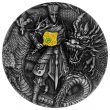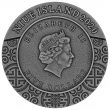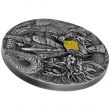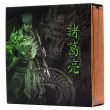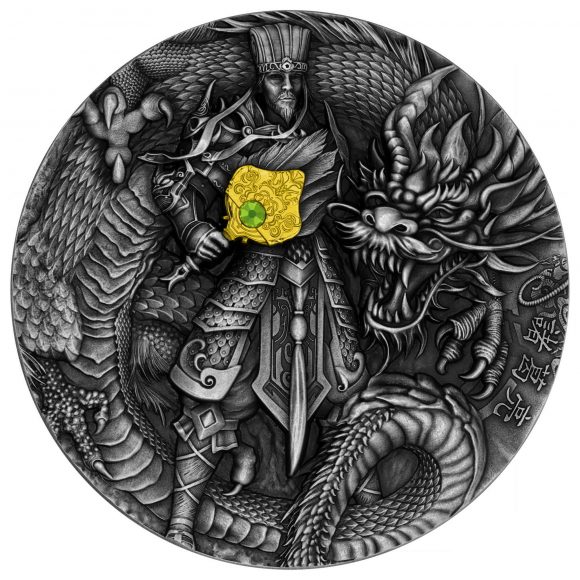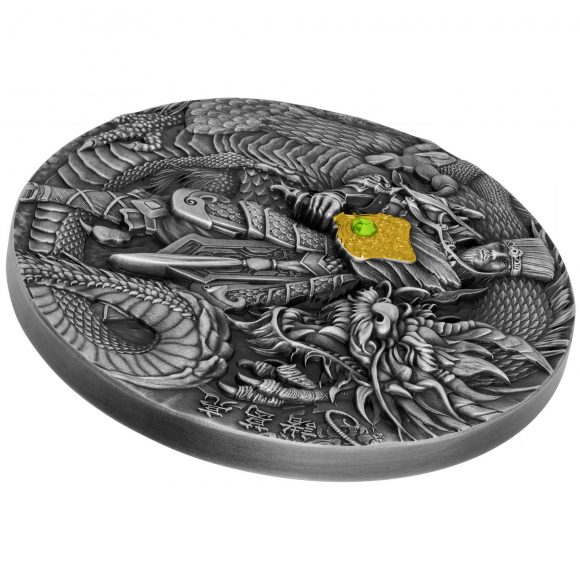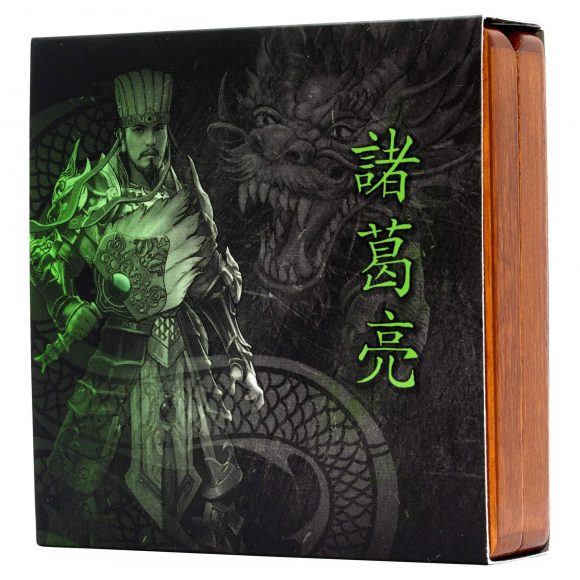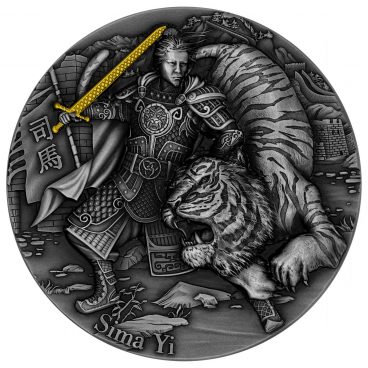Zhuge Liang (諸葛亮) (181-234), also known by his courtesy name Kongming or Kong Ming, was a writer, military general, engineer and inventor, commonly recognised for his work during his career as a Chinese military strategist. Zhuge Liang is the first issue in the Famous Chinese Warriors series.
Zhuge Liang
| Famous Chinese Warriors | |
| Year of issue: | 2020 |
| Issuer country: | Niue |
| Face Value: | Five Dollars |
| Metal: | Silver |
| Purity: | AG.999 |
| Weight: | 2 oz |
| Dimensions: | 45 mm |
| Relief: | High relief |
| Finish: | Antiqued |
| Additional: | Gold plated |
| Mintage: | 555 pieces |
Description
Also called Zhu Ge Kong Ming or Kong Ming, he was the chief strategist and adviser to the kingdom of Shu, of which he was grand chancellor and later regent, during the Three Kingdoms period. He is recognised as the most accomplished strategist of his time, and has been compared to Sun Tzu, the author of The Art of War. His reputation as a learned and intelligent scholar grew even while living in relative seclusion, along with his renowned success in military intelligence, earning him the nickname „Wolong” or „Fulong”, meaning „Crouching Dragon” or „Sleeping Dragon”. Zhuge Liang is often depicted wearing a Taoist robe and holding a crane-feather fan.
He decided to serve Liu Bei, after being approached with three visits from the young leader of Shu. He had a very successful record of occupation in both municipal and foreign affairs, and was a prestigious strategist due to his tactical skills, which he coordinated by combining knowledge of meteorological and astronomical fields, using this to his advantage in the resolution of conflicts, even when he was outnumbered in his army.
He was also an illustrious inventor of the time: he is credited with the invention of the repeating crossbow; he is also credited with the invention of the flying lantern, floating lamps or lanterns by means of the balloon effect for military purposes such as lighting the way at night without his army being discovered. These flying lanterns are still known in China as Kongming lanterns (孔明燈).
Zhuge Liang was the greatest contributor to the founding of the kingdom of Shu. He predicted the tripartition of the empire many years before it actually happened or, as theorised, the tripartition was planned by him in the beginning. He set out to conquer the northern territories on five different occasions, but the physical and psychological toll of these military campaigns took a toll on his health. He died of illness shortly before the battle of the plains of Wu Zhang in 234 BC.






Other products of Famous Chinese Warriors



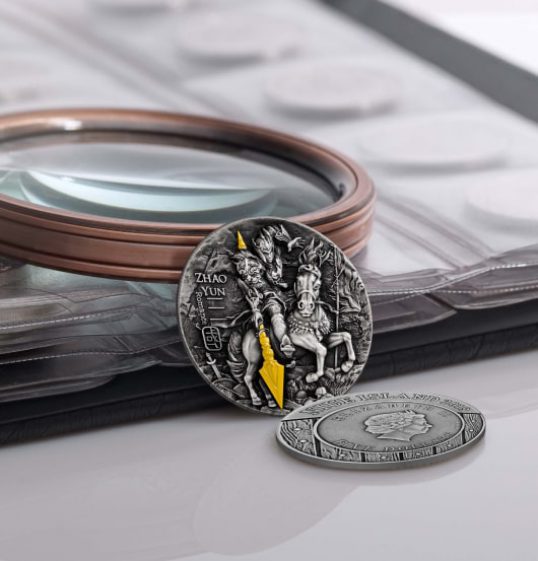
Twoje pytanie zostało pomyślnie wysłane. W niedalekiej przyszłości otrzymasz odpowiedź.

Sprawdź swój e-mail, aby otrzymać wiadomość potwierdzającą.
